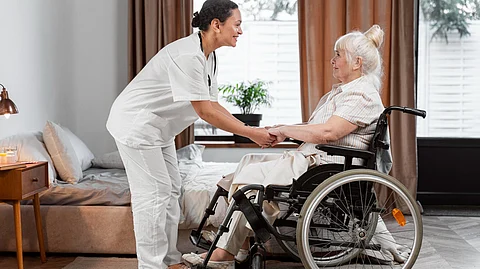One of the most effective ways to care for seniors with memory loss is to create living spaces that feel familiar and comforting. This can involve arranging furniture as it was before. Specialized dementia care for seniors often emphasizes these small yet meaningful details to help alleviate anxiety and enhance comfort.
This might also entail placing personal items around the room that hold significance for them, such as photos or keepsakes. These familiar things can help bring back happy memories.
Recognizing familiar items can evoke feelings of calmness and safety in seniors. Establishing an environment that feels like home is crucial for their comfort and overall well-being. In professional care settings, staff often wear IDs in a Custom Lanyard so residents and visitors can easily recognize them, helping create a safer and more familiar environment.


